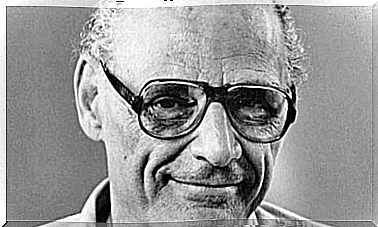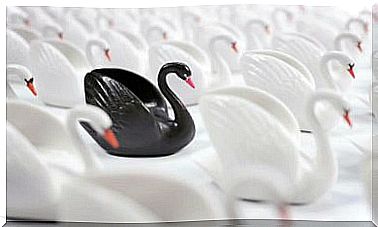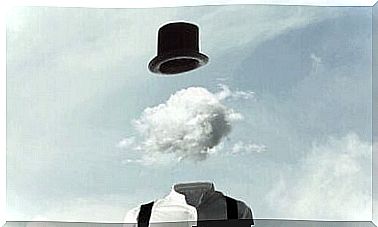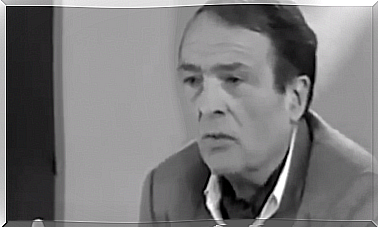Psychological Abuse By Parents Of Adult Children
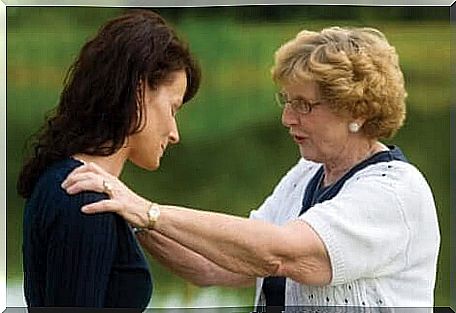
The psychological abuse of parents on adult children is a reality. Manipulations, blackmail, words that hurt and hurt, comments that continue to feed the same childhood insecurity… Sometimes, with maturity, the bonds that hurt are not cut or repaired and the same dynamics continue to occur, those that diminish self-esteem and even the quality of life itself.
There are circumstances that remain invisible in our society. Psychological abuse takes many forms and falls on many types of victims. There are the elderly who suffer abuse from their children, the children who suffer from the effects of a harmful upbringing and there are also men and women who, even having reached maturity and even independence from the home, continue to be subjected to aggressive treatment from a father, a mother, or both.
What can be done in these cases? Triggering social services or other organizations is, for many, little more than an irony. What is the use of exposing something that has been lived forever? There are those who do not see it as viable, who have assumed the situation as a reality and continue to keep in daily contact with that abusive family member.
Because there is something obvious: aggressor and victim always have a bond that feeds dependence, fear and even affection. A harmful affection, it is true, a poisoned love between parents and children. However, these situations occur frequently, persist and become chronic.
The effects of this kind of reality are immense. Let’s look at the question in detail.

What does the psychological abuse of parents on adult children consist of?
We define maltreatment and psychological abuse as any behavior that seeks to control and subjugate another human being through the use of fear, manipulation, humiliation, intimidation, projection of blame, coercion, and even constant disapproval.
These forms of aggression do not leave marks on the skin, but they damage psychological integrity. The impact on a child’s mind, for example, can be devastating. If, in addition, this type of situation lasts for decades, it is already possible to imagine the extent of the damage, the alteration of such basic aspects as self-esteem, identity, personal safety, etc.
Parental psychological abuse of adult children does not arise overnight. This responds to a dynamic that has its origins in childhood. This explains why many people reach adulthood with a hard emotional “baggage”, with a history of psychological abuse that leaves, in many cases, the shadow of a post-traumatic stress disorder.
However, what is most impressive is that they often make remarkable efforts to look normal. Few people in your immediate environment know these facts. Sometimes, not even the closest friends are aware of these abuses, of those circumstances that are silenced and never exposed.
When monsters are parents and we normalize abuse
When we say that psychological abuse by parents of adult children is common, the first thing that comes to mind is why . How can anyone withstand this situation? Isn’t it better to distance yourself and sever ties with abusers forever?
The answer is not simple, because the link between victim and aggressor is extremely complex. Sometimes, despite adverse circumstances, coagulated by anguish, fear, humiliation and contempt, one can continue to love those who are making them suffer. Because, after all, it’s your father or mother, and when that’s all you’ve known from childhood, many of these events are “normalized.”
So while these adult children endure and survive in that ambivalence that goes between affection and fear, love and hate, abusive parents don’t change just because the child has become an adult. Contempt, criticism, humiliation and emotional manipulation continue to be useful for controlling and exercising power.
Monsters don’t turn into good people over the years. Generally, they still need your command and authority because it’s part of their personality and essence.
What is the effect of parental psychological abuse on adult children?
One of the consequences of being emotionally abused from childhood is the development of post-traumatic stress disorder in adulthood. Studies such as the one carried out at the University of Utrecht and at the University of Coimbra, in Portugal, show the significance of this relationship.
Psychological abuse that continues into adulthood often has the following consequences:
- Problematic and unsatisfactory affective relationships.
- Low self-esteem, sense of worthlessness, destruction of pride, personal safety, motivation…
- Emotional repression, tendency to hide one’s emotions.
- Episodes of anxiety, stress, sleep disturbances, etc.

What can be done in these situations?
If there is one priority, it is for the adult child to be fully aware of this abuse and the need to face the situation. Often, behind these realities, addiction is hidden, both emotionally and financially (there are many children who cannot leave home because of financial problems).
In the same way, sometimes, although they are financially independent, the link of abuse remains evident, but clandestinely through manipulation, criticism of each decision made, in front of the chosen partner, etc. It is necessary to assume that these situations cannot and should not continue.
Given this fact, there are only two options: to show the reality in front of the aggressor parents and definitively cut off the relationship, or reduce contact and reduce communication to the minimum necessary.
Also, and not least, children of abusive parents need psychological help. All these decades of suffering and humiliation leave a deep wound that must be dealt with. The goal is to recover self-esteem and personal security to build a life of its own, independent, mature and happy.


